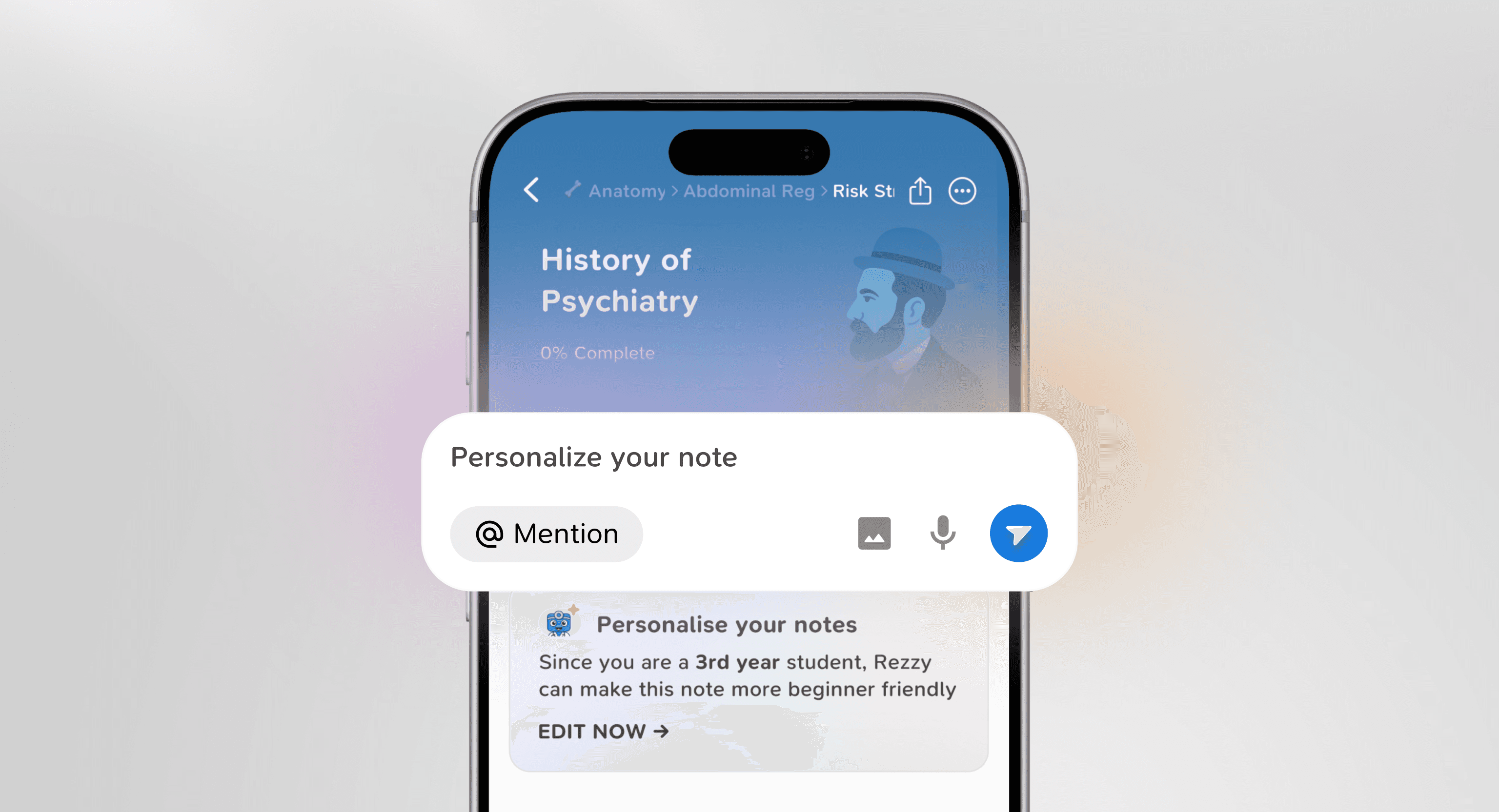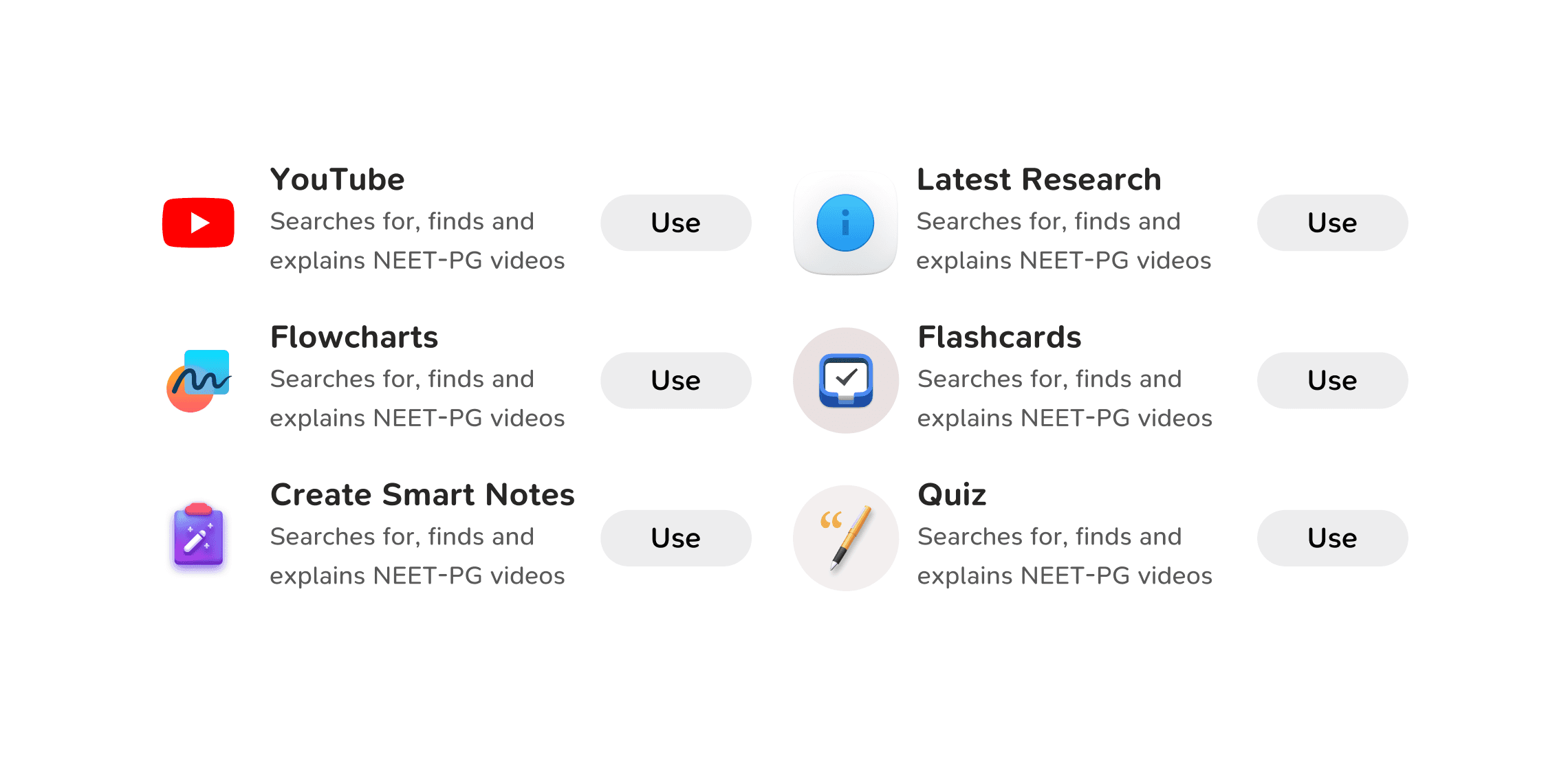When Every Question Finds Its Answer
Medical school demands something unusual from your brain: memorise thousands of facts, think like a scientist, and apply knowledge to messy human problems—all at once. The volume alone is staggering.
Yet most students spend the majority of their time learning in isolation. Lectures, textbooks, recorded videos—all one-way streets.
The research is clear: interactive learning works better.
Studies on active learning show significantly higher retention and deeper understanding compared to passive methods—the kind of back-and-forth dialogue that forces you to articulate reasoning and confront misconceptions in real time creates stronger neural pathways than any amount of solo reading.
The problem isn't intention.
Faculty try. Group discussions help. But a classroom serves fifty-plus minds simultaneously, each with different gaps and questions. Live sessions can't pause for your specific confusion. Recorded content certainly can't.
The interaction exists, but it's diluted, impersonal, unable to follow your particular train of thought or adapt to how you process information.
How Rezzy fills the gap
This is precisely the gap that AI can fill, not as replacement, but as persistent presence. Technology that engages in dialogue whenever questions surface, whether at 2 AM or between cases.

That's the foundational problem Oncourse addresses. Rezzy appears across your study materials—quizzes, notes, clinical scenarios—maintaining context about what you know and where you struggle, adjusting explanations accordingly.

No traditional resource can do this. And increasingly, it's becoming clear they shouldn't have to. Because the questions that matter most are often the ones we think of alone.
